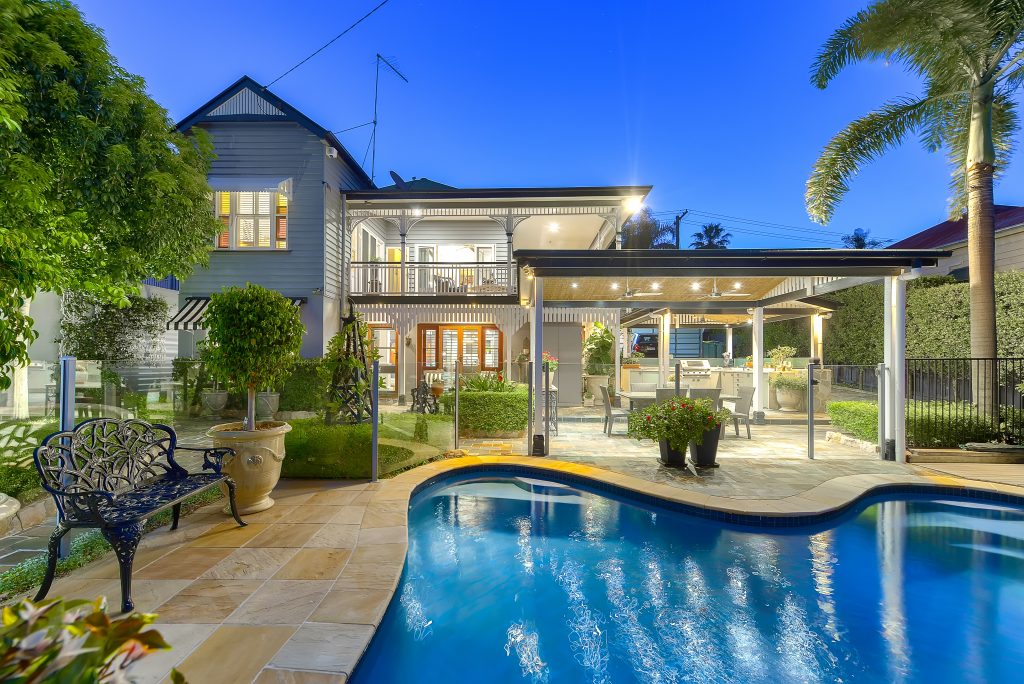When it comes to added improvements that really sell a home, there’s nothing quite like a thoughtfully designed pool.
This is particularly true in the areas where I sell. When a property is looking to achieve a premium price, pools are almost to be expected as part of the package. They are seeking a lifestyle which allows them and their family to relax and enjoy their downtime… and pools are a big part of that equation.

But selling a property with a pool is not simply about checking the pH level and making sure the heater is set to a constant 27 degrees. Safety is the number one priority and vendors need to be aware of their responsibilities.
The pool safety certificate
Pool accidents involving children have been trending lower over the past 25 years, but even one tragic event is one too many. A concerted campaign around pool safety, plus early learn-to-swim programs have played huge rolls in keeping the numbers down.
But a big part of why we’re seeing accident number drop is also due to more rigorous swimming pool safety standards.
A pool safety certificate (PSC) is a document issued by a qualified pool safety inspector who ensures your pool and its surrounds comply with safety standards. The pool safety inspector may also, as part of his role, issue a non-conformity notice if elements need rectification for compliance.
The inspector will attend your home and assess fencing and accessibility to ensure vulnerable people can’t easily gain access to the pool when a responsible person isn’t present.
When you sell or lease out a house or unit in Queensland, there should be a current PSC attached to the pool. If not, the seller must complete and provide to the buyer a Form 36-notice of no PSC prior to entering into the contract of sale, and additionally send a completed copy of the form to QBCC (Queensland Building and Construction Commission) before the property is settled. The QBCC website has a register where you can check if a pool has been registered with them.
Once settlement occurs, the buyer then has 90-days to get a valid PSC.
Of note, the guidelines around securing a PSC vary depending on whether the pool is “shared” (such as in a unit complex) or “non-shared” (such as for an individual home). For body corporates with shared pools, for example, the PSC must be in place and on display prior to any property trading in the complex.
Also, when leasing out a property with a pool, a PSC must be in place before the lease is signed.
Pool safety inspectors can also act as consultant when you’re installing or upgrading a pool. They can advise on pool fencing construction type, height and placement. They can also provide information around pools that are of unique placement. For example, a pool may be elevated and designed to include an infinity edge with a dramatic drop. In this instance, the pool safety inspector can advise the designer and builder on what compliance measures must be in place.
What are the safety standards?
The pool safety guidelines include a range of elements such as:
Fencing and barriers
Encompassing the height and strength/construction type of fences. Could also be a barrier created by a building, retaining wall, or balcony balustrades of appropriate dimension. For example, if the sides of an above-ground pools are 1200 mm above ground level, that would comply with the standard.
Creating non-climbable zones
You must position climbable objects and elements away from the pool fence. The rule is they must be 900mm away from the outside of the fence, and 300mm away from the inside.
Pool gate operation
This includes self-closing and self-latching requirements. Inspectors will also check latch and hinge positions to ensure they don’t allow for climbing.
Preventing direct access from a building
No doors should open directly from the building onto a pool area. Also, openable window placements are strictly controlled to meet height and access standards.
Mandatory pool signage
Particularly for CPR signs. These must be attached in an obvious location and be easy to read and access in the event someone needs resuscitation. Also make sure your signage is up to date as guidelines around CPR have been known to change.

Safety in this space is crucial and my advice is to always have a qualified certifier issue a PSC for your pool prior to listing your property for sale. This removes any doubt and allows for a clear and open settlement process.
Pools are a wonderful addition to most homes. Just make sure they are designed and operated in a way that keeps families safe and loving their outdoor times in our awesome Brisbane summers.
